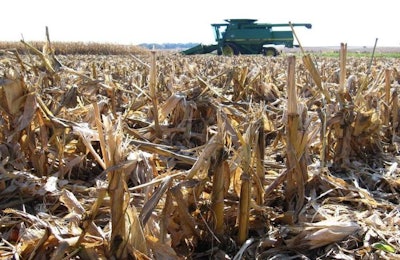
While the grain harvest in Europe is generally progressing well, warnings have been issued about serious problems in France.
With the quantity and quality adversely affected in central, northern and eastern France by excessive rain and an absence of sun, there is great uncertainty about the grain crop outlook in France, USDA Foreign Agricultural Service (FAS) reported recently. These adverse weather conditions have been blamed for reports of lodging, mycotoxin development, small grains and poor quality, and the harvest is also running around two weeks later than normal. Wheat, barley and corn have all been impacted.
There is more optimism from the country’s other crop-grain regions in the southwest and on the Atlantic and Channel coasts, but the overall prospects for the French crops will not be known until the delayed harvest is completed, according to FAS.
Responding to the challenging situation for the sector caused by the prospects of a small harvest combined with low prices, France’s agriculture minister, Stéphane Le Foll, announced last week the maintenance of a 10 percent levy on the level of aid under the first pillar of the Common Agricultural Policy (CAP) in 2017 to allow payments to the redistributed to hard-pressed cereal and mixed farmers.
There is also to be an increase in aid for the first 52 hectares (128 acres) of each farm from 5 percent to 10 percent this year. The minister added that the situation will be reviewed in October, when the actual payment of CAP aid will have been accurately assessed.
Representatives of the French cooperative sector, Coop de France, met with the Minister this week to discuss the situation.
According to the organization’s president, Michel Prugue and vice president, Christian Pees, immediate priority should be given to support to allow farmers to prepare for the next crops. For this to happen, they requested consideration of short-term loans at zero or reduced interest, and the postponement of annual amortization payments.
They also called for longer-term support in the recovery from the crisis, and for reform of the CAP and of the current tool available in France for crisis management to offer a better response to extreme events in future.

















